TURNING THINGS ON
By Sammy Jordan Project Lead HOPE For Every Home
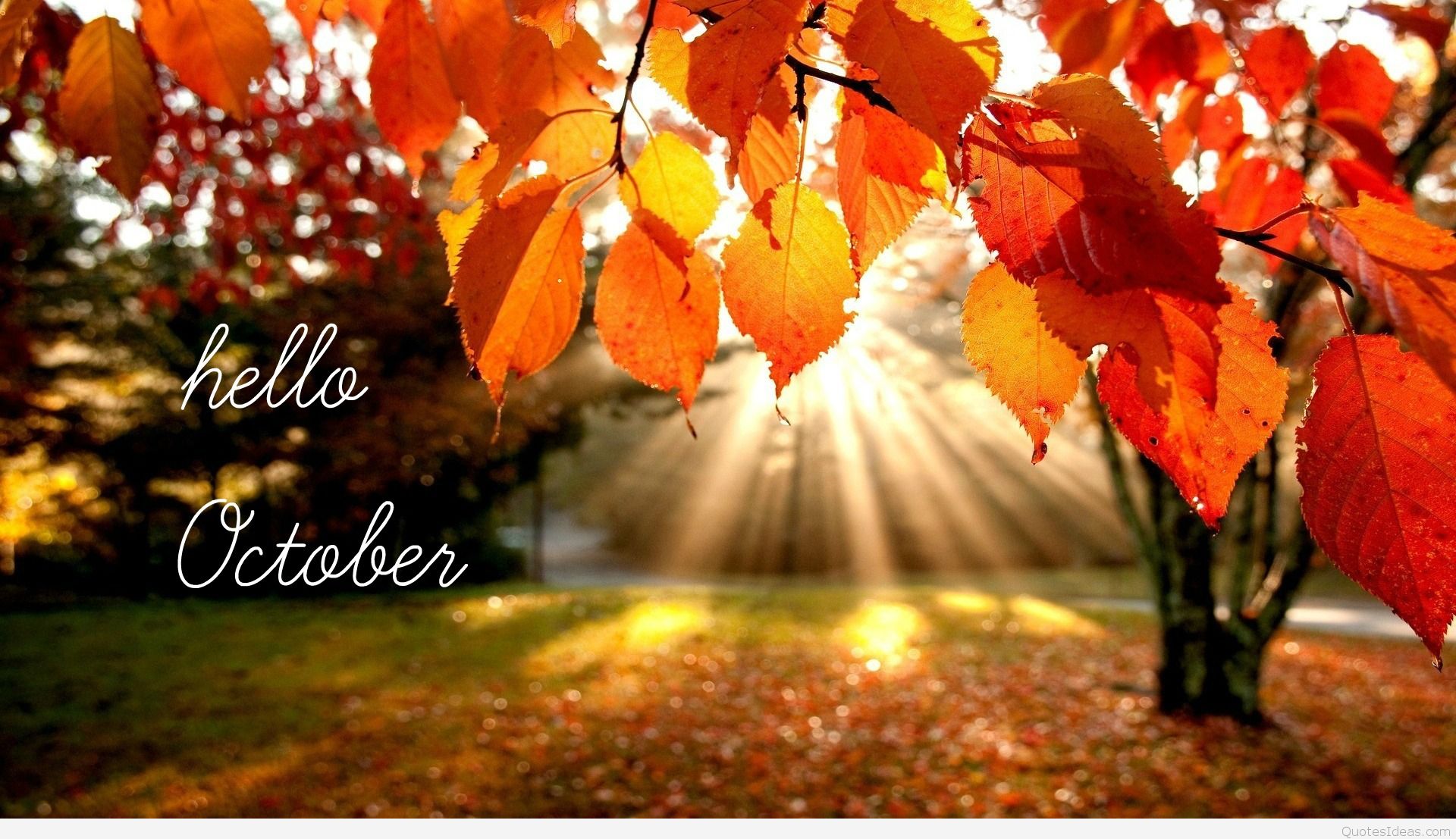
Are you giving October a warm welcome? Mine can often be as cool as the autumn temperatures, if I’m honest! I ignore the official first day of autumn on 21st September, stick my head in the sand (oh how I wish I was at the seaside again) and cling on to that summer feeling. But, come 1st October, I just can’t deny it any longer. October is simply not summer. October is autumn, a time of falling leaves, extra layers, and turning things on. We flick on the lights as daylight shortens and skies darken. We ponder the heating dilemma… how long to wait until you turn the heating on?! Or perhaps you welcome October with open arms? My daughter, for one, loves this time of year. She loves the warm autumn colours and is a snuggly-jumper-kind-of-girl. This year, I don’t think many of us will give October a warm welcome. The loss of summer is compounded by the loss of our Queen and the worry of losing money as the cost of living rises. Turning things on is turning up our anxiety. ‘The cost of living crisis’ has entered everyday language as talk turns to ‘the choice between heating and eating’, and politicians debate ‘the energy price cap’.
 Many churches, community groups and organisations have found creative, compassionate responses. There has been a rise in ‘warm spaces’ where people can go to keep warm, get a hot drink, and access support. Many churches, community groups and organisations have found creative, compassionate responses. There has been a rise in ‘warm spaces’ where people can go to keep warm, get a hot drink, and access support.
Church and community social action is often about responding to the need of a particular group, perhaps at a particular time. But this is different. The impact of the current fuel challenge is bigger. For many churches the challenge will be paying their own rising bills, let alone opening the church doors more regularly for the community. Recently, in my own church, we sat and wrestled with this challenge and had to think creatively, asking ourselves ‘when is the building already warm?’ We opened the building for the community to watch the Queen’s funeral and turned the heating on, even though it wasn’t yet autumn! (A funeral is not the time to be cold!) It’s not just church buildings facing this challenge - schools, hospitals, shops and community centres are all in the same boat.
Talking of boats… I’ve been pondering the story of Jesus getting into Peter’s boat when he was cleaning his nets. After Jesus teaches from the boat, we get one of the famous, miraculous catches of fish, and the calling of Peter (Luke 5:1-11). As someone who’s used to working with children, I wonder whether this story has become too familiar, entangled in fishy crafts, role-play with nets, and playing ‘follow me’ games. It can be a challenge to find something fresh to pull out, other than fish! But thankfully, God used some wise friends of mine to catch my attention and turn me back to this passage.
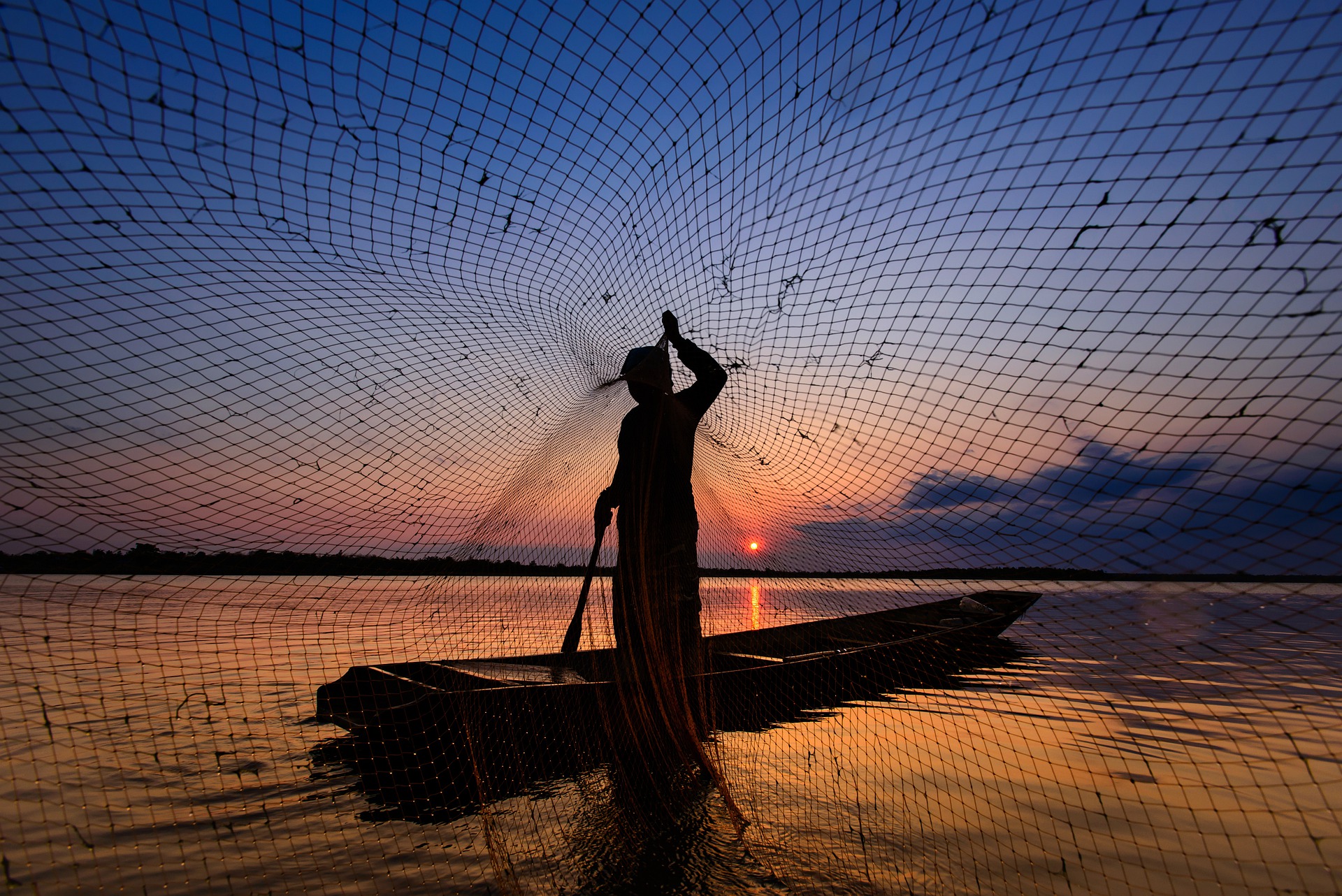
This moment was Peter’s first personal encounter with Jesus, after a hard and fruitless night’s work. Comparing gospel accounts, it’s likely that Peter had come across Jesus before and even been ‘part of the crowd’. But in this moment, swaying in the boat, Peter has a front row seat to the words and wonders of Jesus. Imagine being Peter, in this old, rickety fishing boat as he encountered Jesus! Well, I think this boat is in actual fact, very significant. Peter was a Jew, well acquainted with the temple and meeting house; but this encounter takes place in neither. Peter encounters Jesus and the power of God outside the formal environment, right there in his everyday.
Up close and personal, Peter is part of a supernatural catch of fish. He’s there pulling with all his might on a net full of fish too heavy for him. Jesus knew where God would put the fish, Peter – the experienced fisherman - didn’t. The breakthrough required Peter’s humility and obedience. He must cast aside all he knows about fishing and cast his nets on trust in Jesus. Was Peter tired and grumpy after a whole night of empty nets? Was he waiting to say ‘I told you so’ when they came up empty again? Nevertheless, he respects Jesus and humbly obeys. Cue the humungous catch of fish.
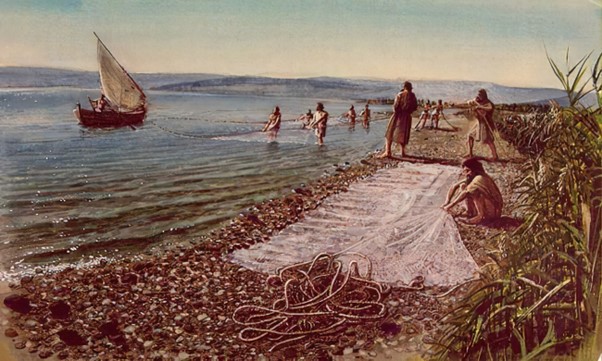 I wonder whether we, like Peter, are open to God working in our everyday? Outside of church buildings, beyond our traditional structures… I wonder whether, during Covid-19, God took his Church out of buildings that are expensive to heat to prepare us for such a day as this. Perhaps God I wonder whether we, like Peter, are open to God working in our everyday? Outside of church buildings, beyond our traditional structures… I wonder whether, during Covid-19, God took his Church out of buildings that are expensive to heat to prepare us for such a day as this. Perhaps God
is at work out in the community, in different spheres of influence.
Just like Peter set aside his fishing experience, I wonder where God might be asking us to do likewise. What would it look like to suspend our disbelief and ‘move to the other side’? Perhaps the supernatural is out of site beneath the waves, but waiting within reach. Where is God challenging our accepted thinking, comfy mindsets and earthly wisdom?
The Holy Spirit is calling us to renewal. I believe God wants to do a new, holistic thing, beyond human structures, and not limited to any one sector of society. Amidst anxieties about the cost of living, at a time when we find ourselves with a new King, a new Prime Minister, a new Cabinet, a ‘new normal’ after Covid lockdowns, there is another kind of ‘new’ on the horizon. The Spirit of God is building the Kingdom of God.
 Despite the breaking and shaking of old established structures, I wonder if we are seeing a resurgence in old values. As I reflect on our reaction to the death of Her Majesty the Queen, I’m struck by how a country that has been wrestling with relative values, personal truth, flexible identity, cancel culture and ‘wokery’ has reacted. Monarchists or not, there was widespread respect for the person and character of Queen Elizabeth, for her dedication to service and duty to people and to her faith. With so much turbulence nationally, internationally, and personally, there seemed to be a comfort and solace in structure and tradition, even in pomp and pageantry. Despite the breaking and shaking of old established structures, I wonder if we are seeing a resurgence in old values. As I reflect on our reaction to the death of Her Majesty the Queen, I’m struck by how a country that has been wrestling with relative values, personal truth, flexible identity, cancel culture and ‘wokery’ has reacted. Monarchists or not, there was widespread respect for the person and character of Queen Elizabeth, for her dedication to service and duty to people and to her faith. With so much turbulence nationally, internationally, and personally, there seemed to be a comfort and solace in structure and tradition, even in pomp and pageantry.
In a church context, being missional-minded means I can struggle with liturgy and tradition when it seems inaccessible to those with no faith background. But as I watched the Accession Service on the Saturday after the Queen died, I found our traditions of state, which so swiftly and seamlessly swung into action, comforting. Continuity in the thick of chaos. And who can forget the queue! The queue that stretched for miles could be seen from space (apparently!). Queuing people became ‘friends for life’ over a shared sense of loss, demonstrating quiet dignity and patience. The death of the Queen seemed to turn on old, latent values and maybe even faith. People talked about the queue being a ‘spiritual experience’.
After the Queen died, it was normal to hear references to her faith. As head of the Church of England, the role of faith was prominent in her life. On the day of the Queen’s funeral, BBC anchor Kirsty Young, commented that it makes us all think ‘I remember when…’. The death of the Queen, who had been the wallpaper in the background of our lives for so long, suddenly brought things to the foreground that we often don’t talk or think about. The universal, inescapable reality of death, our own personal losses, and perhaps a need for order amid chaos, seemed to be ‘turned on’ in lives across our nation. As the Arch Bishop of Canterbury, Justin Welby, was proclaiming the Queen’s hope from the pulpit in Westminster Abbey and asking, ’Death where is your sting?’, I knew where it was for me. I lost my Dad unexpectedly in March 2020, and was unable to grieve properly because of Covid restrictions. I know that the sting of death, the pain, is in the loss felt by those left behind. My Dad, like the Queen, had a sure and certain hope; but as his family, we felt the pain of loss. As the Queen herself said, ‘grief is the price we pay for love’.
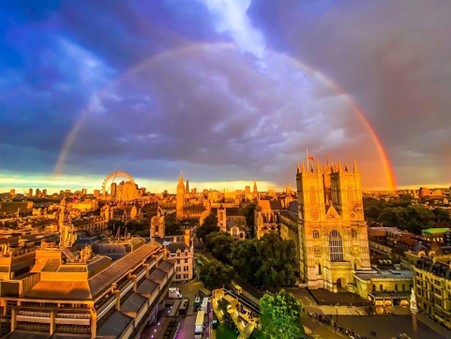 I wonder whether the impact of the death of the Queen will become a reference point for modern culture as did the death of Princess Diana. A turning point, a collective ‘life event’, which makes a lasting mark. Will our newfound national unity melt away as quickly as it emerged, or has the death of the Queen reminded us of things we’ve lost that we’d like to hold on to? God is ‘making all things new’ but maybe instead of ‘out with the old and in with the new’, it’s a repositioning and refreshing of old structures, values and traditions, repurposed in a new season. I wonder whether the impact of the death of the Queen will become a reference point for modern culture as did the death of Princess Diana. A turning point, a collective ‘life event’, which makes a lasting mark. Will our newfound national unity melt away as quickly as it emerged, or has the death of the Queen reminded us of things we’ve lost that we’d like to hold on to? God is ‘making all things new’ but maybe instead of ‘out with the old and in with the new’, it’s a repositioning and refreshing of old structures, values and traditions, repurposed in a new season.
The Queen’s first Prime Minister was born in 1880 and her last in 1974; she had to navigate change throughout her life, keeping in step with the times. Peter also had to navigate change. He went from fisherman to fisher of men, putting aside what he knew and humbly following his Lord - and finding the supernatural within his reach. The call on the Church is to do the same. What is God doing to break or repurpose old structures and practices, in order to birth the new? Are we prepared to turn on our humility and obedience to reach it?
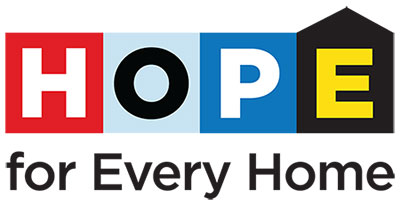
If this is the sort of conversation that sparks your interest, then you might like a few of our resources. ‘HOPE For Every Home’ is about everyone everywhere knowing Jesus. How? Through his Church (not the building) being mobilised to share the Good News in our everyday, in everyday ways. www.hopeforeveryhome.org
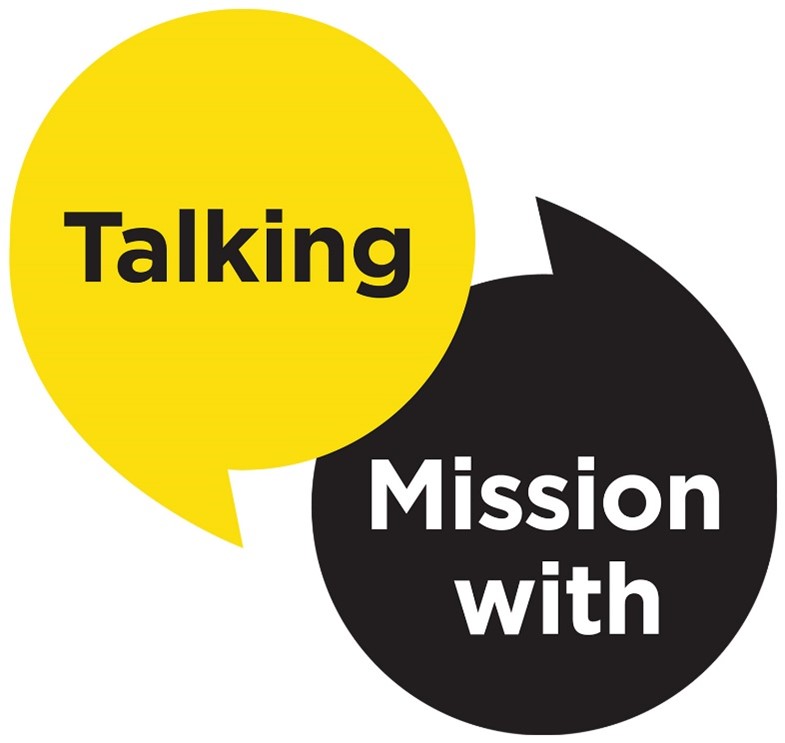
‘Talking Mission With’ is our Learning Community for people engaged in, and enthusiastic about mission as part of their everyday. We meet quarterly for a lunchtime webinar and hope to develop a supportive, relational network that will have a physical localised expression too. Our second meeting is on 4th October, and I’d love to hear your ‘mission with’ stories! You can find more details here or contact Sammy.jordan@hopetogether.org.uk.
If the passing of the Queen has brought up your own experience of grief and loss, you might like to check out the resources at www.lossandhope.org. ‘The Bereavement Journey’ is a course for those journeying with different forms of grief and loss and is suitable for Christians and non-Christians.
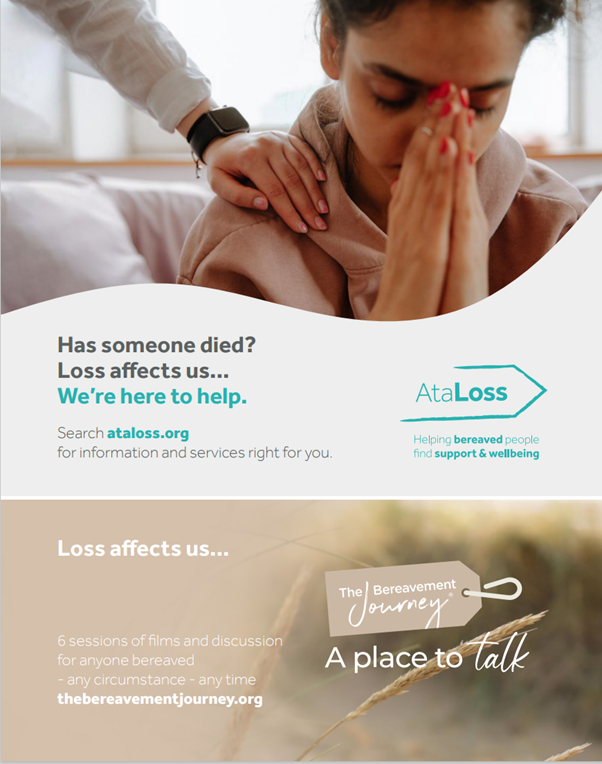
|